China Warns US Over South China Sea Dispute, As Media Say Beijing Is 'Not Afraid' Of War With US
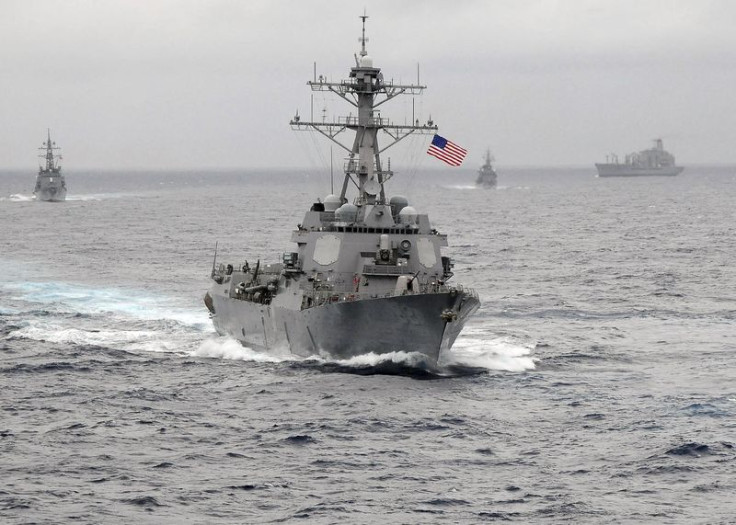
SHANGHAI -- China has described Tuesday’s “freedom of navigation" patrol by a U.S. naval ship, close to islands China claims in disputed waters in the South China Sea, as “extremely irresponsible,” and has warned the U.S. of consequences of any further such actions. The warning, from a Chinese navy official, came as local media said China was “not afraid to fight a war with the U.S. in the region.”
U.S. officials said the mission by the destroyer USS Lassen, close to the islands in the disputed Spratly Archipelago, was designed to stress that they lie in international waters, and to ensure that China’s recent reclamation of land on several islands would not interfere with shipping. China’s neighbors, including the Philippines and Vietnam, which also claim parts of the disputed area, have expressed concern that China’s construction on the islands, including three runways, could be used for military purposes.
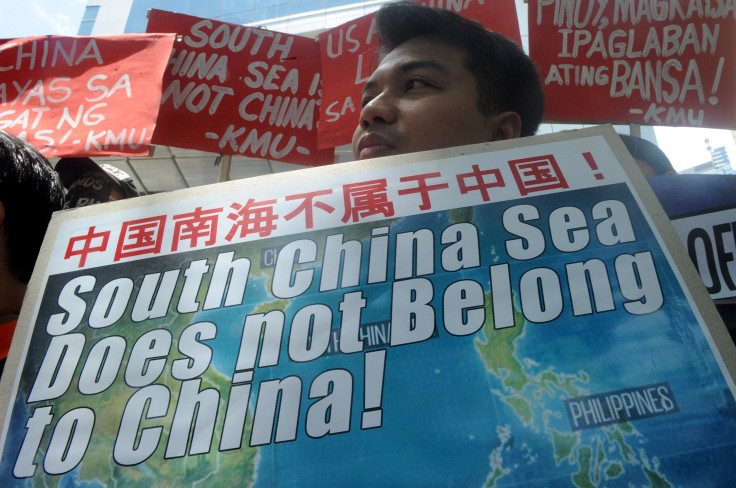
However, Beijing says its development of the islands has not impeded shipping, and insists that the facilities it has built, including two new lighthouses, will actually benefit safe navigation. It also argues that Vietnam and the Philippines have developed their own facilities on disputed islets, without provoking U.S. criticism. And after the Lassen’s three-hour patrol through the area, China’s Deputy Foreign Minister Zhang Yesui summoned U.S. Ambassador to Beijing Max Baucus and made “serious representations” over the action, which he described as "illegal," state media reported on Wednesday.
China’s Defense Ministry said a Chinese guided missile destroyer and patrol boat had both given warnings to the U.S. vessel, and the Chinese navy warned that further U.S. forays into the area could "trigger eventualities," according to the official Xinhua News Agency.
Beijing has recently stepped up its claims that the islands have been its territory since ancient times. And the U.S. mission, which was widely reported in Chinese state-controlled media, prompted an angry public reaction, with many Internet users calling on the government to respond not just with words but with actions against the U.S.
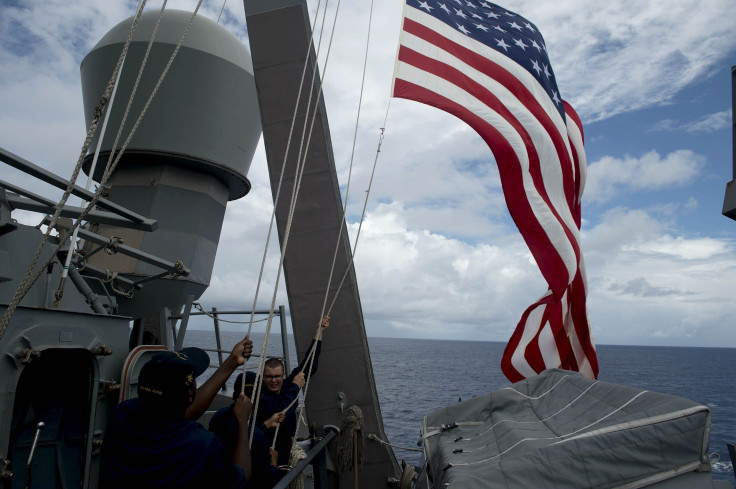
However, a commentary in Wednesday’s edition of the Global Times, an often hawkish tabloid published by the official People’s Daily, called for "calm." It said the U.S. patrol was a provocation, designed to provoke anger and shame in China. It said this was a test of the “wisdom and determination” of the Chinese people, and China should deal with the U.S. harassment “tactfully.”
The paper also quoted experts as saying the nation was “not willing to see an escalation into military conflict.” At the same time, it said, China should “prepare for the worst” -- in order to “convince the White House that China, despite its unwillingness, is not frightened to fight a war with the U.S. in the region, and is determined to safeguard its national interests and dignity.”
A U.S. State Department spokesman said on Tuesday that the patrol “should not have any negative impact” on relations between Washington and Beijing, Reuters reported. And during Chinese President Xi Jinping’s recent state visit to the U.S., China pledged not to militarize the islands -- one of the main fears of its neighbors in the region.
However, Xinhua said that the Lassen’s mission had breached an agreement reached during that visit that the two countries would continue to consult each other over the South China Sea dispute. (A U.S. official reportedly said there was no need to inform China in this case, since the patrol took place in international waters.) And China’s foreign ministry spokesman said on Tuesday that if the U.S. continued "stirring tensions," then Beijing would have no choice but to “speed up and strengthen construction activities” on the disputed islands.
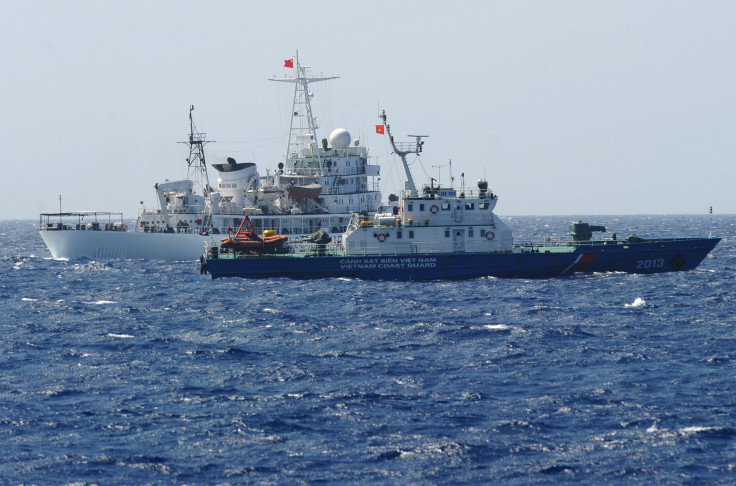
Some observers have said that China does not want conflict over the islands, as its leaders seek to concentrate on solving problems of the nation’s slowing economy. And in a sign of continuing normal relations with other members of NATO, a French naval frigate docked in southern China on Wednesday, in preparation for a joint search and rescue exercise with the Chinese navy.
However, Xi said in a recent interview that “the Chinese people will not allow anyone to infringe on China’s sovereignty and related rights” in the South China Sea. And after more than a year of observing the Chinese construction from the sidelines, the U.S. appears to be toughening its own stance, with an official quoted by Reuters this week saying that patrols in the disputed area would be “a regular occurrence.”
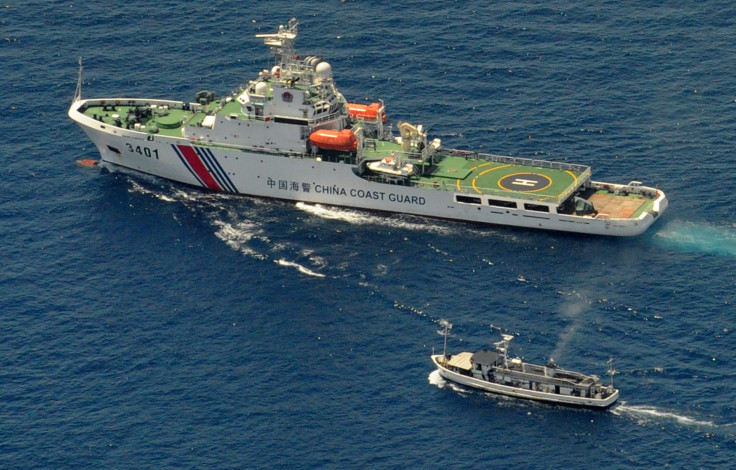
And with the added pressure of an angry Chinese public reaction, some fear that the U.S. move could strengthen hawks in China's military. Willy Lam of the Chinese University of Hong Kong told International Business Times recently that senior generals were urging Xi to demonstrate Beijing’s growing military muscle in the region.
“The South China Sea is a potentially dangerous flash point,” Lam said.
And a commentary in the Chinese edition of the Global Times on Wednesday suggested that the U.S. was a "paper tiger" -- a Chinese expression that describes something that is not actually as frightening as it appears. The article said that the U.S. had failed in military missions in Iraq and Afghanistan, and was incapable of solving problems in Syria, or of preventing Russian action in Ukraine.
© Copyright IBTimes 2024. All rights reserved.












